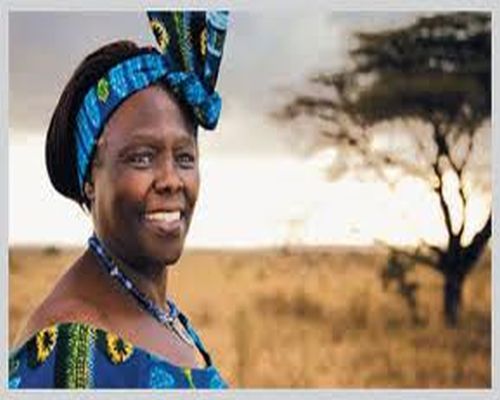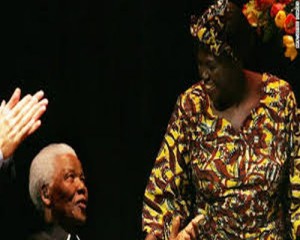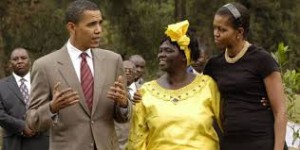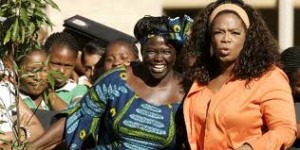Kenyan born, Wangari Muta Maathai (1940-2011) was the first woman in East and Central Africa to earn a doctorate degree and the first woman to lead a university department. Most notable, she was also the first African woman to win a Nobel peace prize.
Wangari founded the Green Belt Movement, an environmental non-governmental organization focused on the planting of trees, environmental conservation, and women’s rights. The Green Belt Movement is essentially a grass-roots movement aimed at countering the deforestation threatening the means of subsistence of the agricultural population. The movement encouraged women to plant trees in their local environments and to think ecologically. The campaign spread to other African countries, and contributed to the planting of over thirty million trees. Maathai saw tree-planting in a broader perspective which included democracy, women’s rights, and international solidarity. In the words of the Nobel Committee: “She thinks globally and acts locally.”
Asides the prestigious noble peace prize Maathai and the Green Belt Movement received numerous notable awards, such as the Sophie Prize (2004), The Petra Kelly Prize for Environment (2004), The Conservation Scientist Award (2004), the Hunger Project’s Africa Prize for Leadership (1991), Woman of the World (1989), and the Woman of the Year Award (1983).
Professor Maathai was also listed on UNEP’s Global 500 Hall of Fame and named one of the 100 heroines of the world. In June 1997, Wangari was elected by Earth Times as one of 100 persons in the world who have made a difference in the environmental arena. She also received honorary doctoral degrees from several institutions around the world including Yale University (2004).
However in between the receiving of these accolades and awards, Wangari also suffered some notable setbacks. In 1991, Wangari Maathai was arrested and imprisoned and was also arrested numerous times by the government of Kenyan President Daniel arap Moi. In 1997, Wangari Maathai made the bold move of running for president, her party without her knowledge, withdrew her candidacy a few days before the election. In 1999 she suffered head injuries when attacked while planting trees in the Karura Public Forest in Nairobi, part of a protest against continuing deforestation. Wangari’s husband filed for divorce in 1979. It is alleged that he believed she was “too strong-minded for a woman” and he was “unable to control her”. He also claimed she was having an affair, an allegation Wangari denied.
Here are some of her key quotes
‘I kept stumbling and falling and stumbling and falling as I searched for the good. ‘Why?’ I asked myself. …. but then others told me that I shouldn’t have a career, that I shouldn’t raise my voice, that women are supposed to have a master. That I needed to be someone else. Finally I was able to see that if I had a contribution I wanted to make, I must do it, despite what others said. That I was OK the way I was. That it was all right to be strong.’
‘African women in general need to know that it is ok to be the way they are- to see the way they are as a strength, and to be liberated from fear and from silence’.
‘When I first started, it was really an innocent response to the needs of women in rural areas. When we started planting trees to meet their needs, there was nothing beyond that. I did not see all the issues that I have come to deal with’.
‘It is good for us Africans to accept ourselves as we are and recapture some of the positives of our culture’
‘It is easy to vilify me and project me as a woman who was not following the tradition of a ‘good African woman’ and as a highly educated elitist who was trying to show innocent African women ways of doing things that were not acceptable to African men’
“There are opportunities even in the most difficult moments.”
Wangari Maathai is inspiredbyglory.com’s shero, primarily because she believed in the ideal and strength of Africa and the African woman. She was a ‘doer’ who instigated and led positive change in her community despite her own personal and many times public setbacks.
Wangari Maathai died in 2011.









Leave a Reply